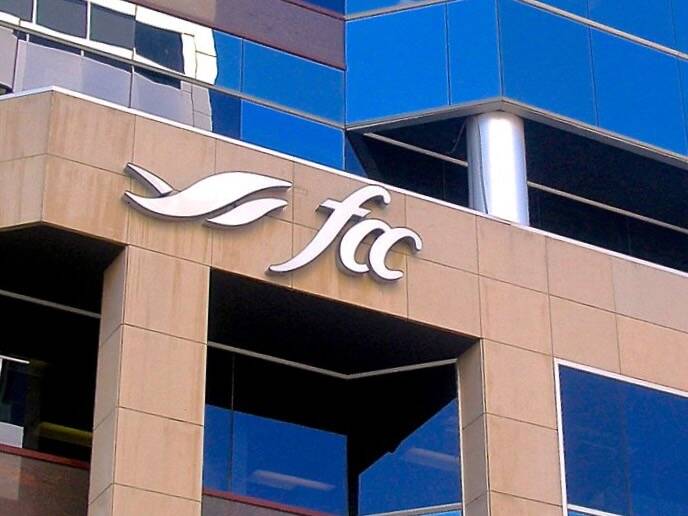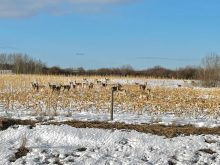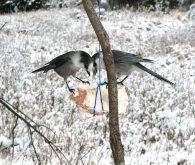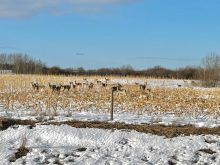Livestock producers around Riding Mountain National Park have long gotten financial help to keep deer away from their herds and feed. Now, beef producers in other parts of the province would like to see the same treatment.
The Manitoba Beef Producers (MBP) will be lobbying the province for financial assistance in setting up fence to keep wildlife out of stockpiled winter feed. A resolution on the issue gained overwhelming support at MBP’s annual general meeting in Winnipeg Feb. 2-3.
Why it matters: Producers want fencing programs set up again bovine tuberculosis in western Manitoba to be expanded.
Read Also

Farm Credit Canada forecasts higher farm costs for 2026
Canadian farmers should brace for higher costs in 2026, Farm Credit Canada warns, although there’s some bright financial news for cattle
District 9 — which includes Lac Du Bonnet and other eastern areas around provincial parks and was the sponsor of the resolution — saw significant deer issues and “degradation of feedstocks” over the last year, a representative from that district said.
“We’ve got producers that are having up to 200 deer a night coming in on their stored feed and it is starting to be a problem again this year,” he said.
Aside from lost feed, it is also a matter of disease prevention, resolution supporters argued. Deer eating stockpiled feed also left feces on remaining stocks, they noted, a potential vector for disease.
Former MBP president Dianne Riding also spoke in favour of the resolution.
“I do believe our producers need help so that we do not end up with a TB outbreak,” she said.
Bovine tuberculosis (TB) has been a thorn in the side of producers around Riding Mountain National Park in western Manitoba since the early ‘90s.
In 2003, the Canadian Food Inspection Agency (CFIA) established the Riding Mountain Eradication Area to fight back against the disease. Between 2003 and 2016, the agency set testing requirements for domestic livestock as well as a monitoring program for wild cervids like deer and elk. The last domestic case of bovine TB was found in 2008.
By 2016, the CFIA had stopped requiring domestic livestock tests, although the U.S. Department of Agriculture held on to testing requirements for cattle and bison exported from the area for two more years.
While the CFIA no longer requires the eradication zone, the province held onto the designation for special hunting requirements and biosecurity programs.
In 2017, the province announced two grants for TB prevention—one for on-farm risk assessments and another to promote fencing.
















